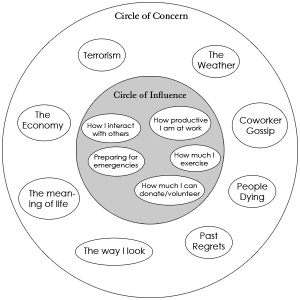I have a confession to make: I’m a Fixer.
On the surface, this sounds good.
It’s great to want to fix things, right? It’s good to want to help people!
Look at Bob the Builder. He’s always fixing stuff. He seems cool, right?

Well, there’s an important difference between me and Bob here. He can fix whatever comes his way. I can’t. Because a) I am not a construction worker, and b) this is reality.
The truth is, the things I usually try to fix are precisely the same things I don’t have any control over, or any business trying to fix, solve or change, mainly:
- Others’ Emotions: Instead of just feeling things with people and entering into someone’s challenge, hurt or discomfort, my knee-jerk reaction is to make those negative feelings stop by “making them feel better”. This inhibits my ability to empathize appropriately and may keep them from exploring and learning from what they are feeling at their own pace.
- Others’ Circumstances or Situations: Again, this comes from what is probably a very normal feeling: not wanting others to experience pain or difficulty, wanting to protect people I care about, etc. But I too often get it twisted and jump in with unsolicited advice or plans that may not be what that person wants or needs.
Both of these can- and usually do- create an unhealthy dynamic of codependency.
I have been a “Recovering Fixer” for years, and it is a tendency I still have to do battle with daily. When it is at its worst, this compulsion to “help and fix and make better” leaves me feeling confused, and under an immense amount of pressure.

Thankfully, my former therapist gave me some great advice, which I try to use anytime someone I care about comes to me with a problem, a difficult emotion, or a need for input. She said, instead of giving advice right away, ask questions. This will help the other person take the lead without you making their choices for them, but it still puts you in a position to help in an appropriate way.
The questions she suggested are written on an index card, which I carry in my wallet to use as a reference. This way I don’t have to rely on my memory in the heat of the moment.
They are:
- What are your options?
- Which option seems best to you?
- Can I help you?
- What Do you need from me?
- How can we get through this together?
I have found these questions- and similar ones that flow naturally from the answers to these questions- to be an immense help. They put my loved one in the driver’s seat, keep the friendship healthy and not too one-sided, and still allow me to help in almost every case.

I have by no means “arrived” when it comes to this struggle. I still find my well-intentioned yet bumbling, knee-jerk responses to the difficulties of others trying to take over almost daily. But I am committed to practicing ask first, advise later (if needed), and so far it has made a big difference.
I would love to hear from you.
Are you a Fixer, too? If so, what strategies help you?







